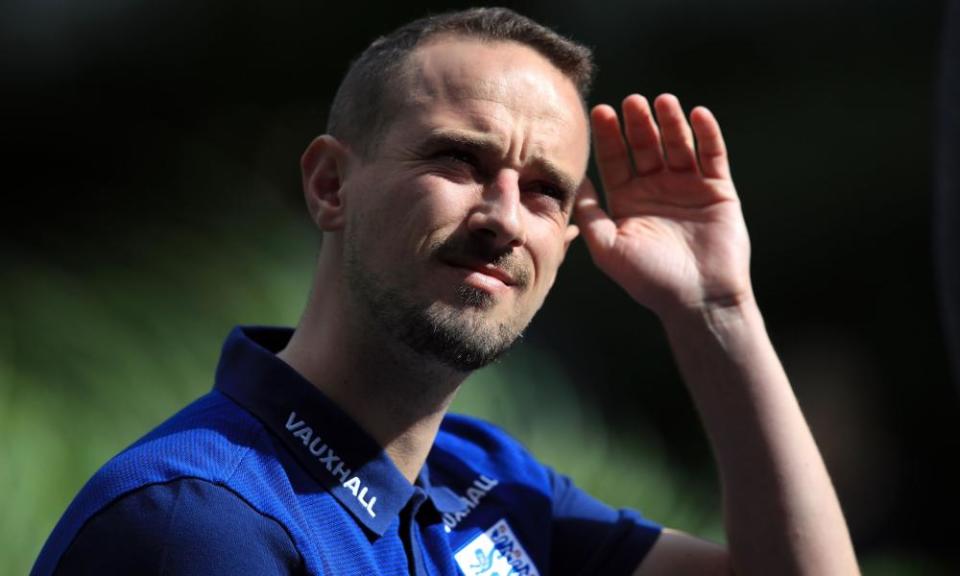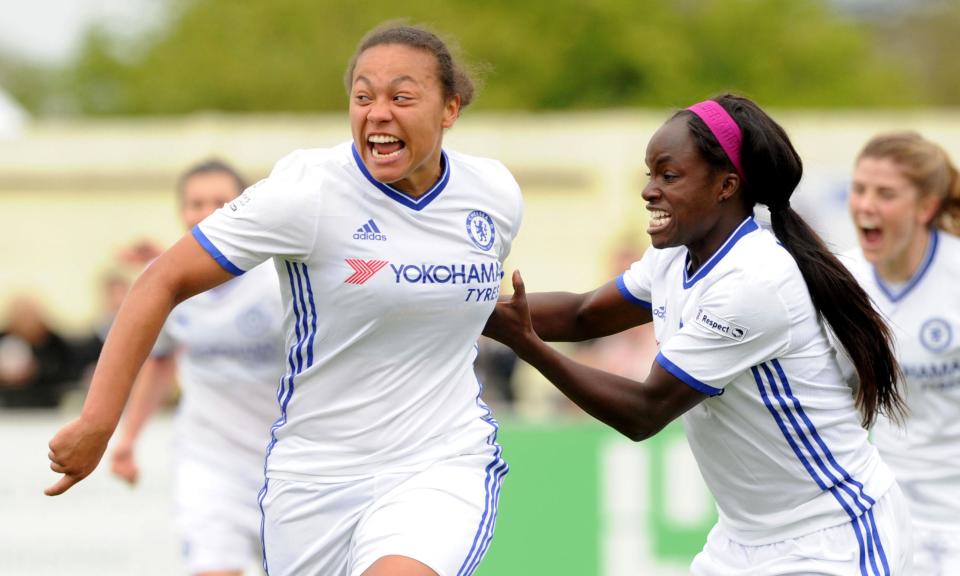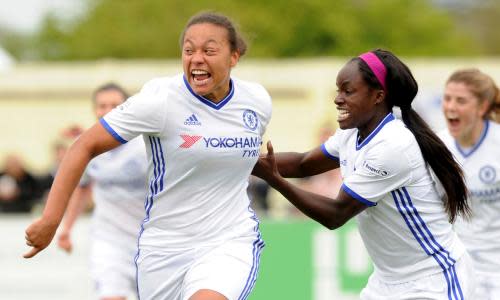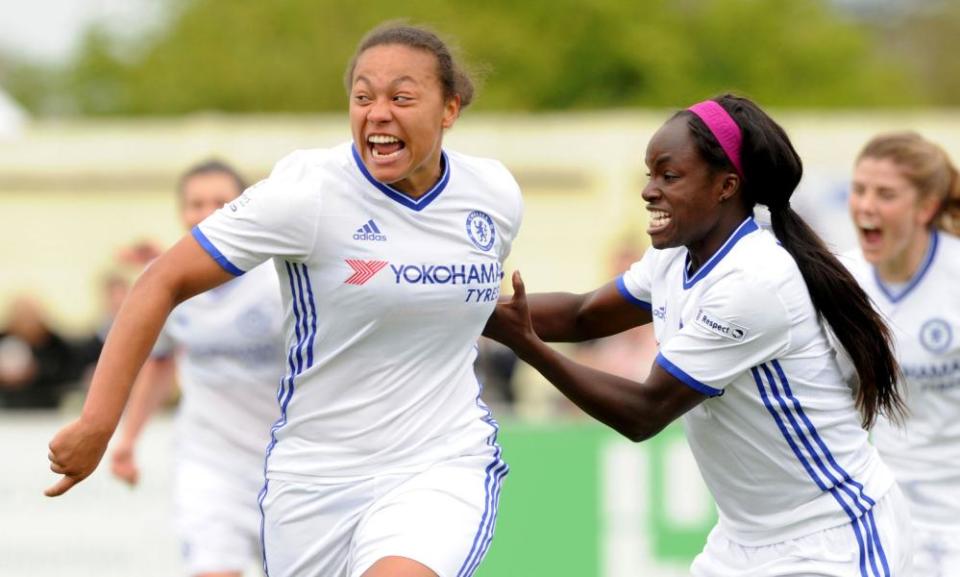FA may launch new Mark Sampson inquiry after key witness comes forward
The Football Association is giving serious consideration to launching a new investigation into the Mark Sampson affair after Drew Spence, the first player to allege he had made a racial remark, came forward for the first time to tell the governing body what Eni Aluko has said about the England women’s team manager was true.
In a key development to a controversy that is threatening to go to the top of the FA, the Guardian can reveal Spence has given a written statement to the organisation alleging that on her first England callup, at the China Cup in October 2015, she was left upset and offended by Sampson asking her, a mixed-race player, how many times she had been arrested.
Spence has also had a private meeting with senior FA officials to give her version of events and is understood to have expressed surprise that the two inquiries which have cleared Sampson of any wrongdoing – one an interval review and the other a three-month independent inquiry, carried out by the barrister Katharine Jones, on behalf of the FA – did not think it necessary to speak to her.
READ MORE: Kane might be world class but needs to leave to win titles
READ MORE: Why Wenger needs to take Europa League seriously
READ MORE: Behind the scenes at Bilbao - LaLiga’s most unique club
As the Guardian revealed this week, the two inquiries also chose not to interview any of the other players in the relevant meeting where Sampson was alleged to have turned to a mixed-raced player, then 22, and said: “Haven’t you been arrested before? Four times, isn’t it?” Aluko has described the inquiries as a “farce” and the Professional Footballers’ Association has accused the FA of holding an internal review that was “not a genuine search of the truth” and “a sham which was not designed to establish the truth but intended to protect Mark Sampson”.
Spence’s decision to back Aluko leaves football’s governing body under mounting pressure to abandon its previous stance that the issue was finished at a time when the culture, media and sport select committee is preparing to summon senior FA executives to explain the holes in the process.
Although the FA is not making any comment, it has become apparent in the past few days there is a growing feeling within the organisation it has made significant errors during a controversy that has led to calls from Kick It Out, the PFA and the shadow sports minister, Dr Rosena Allin-Khan, for a new inquiry.

At the same time Sampson may now face a more in-depth investigation into Aluko’s allegations – repeatedly denied by the manager – that he told her to be careful that her Nigerian relatives did not bring Ebola to a game at Wembley. Aluko was paid an £80,000 settlement, including a confidentiality clause, while the sum total of the FA’s investigation into that matter appears to have been asking Sampson whether it was true and receiving his denial.
Aluko told the Guardian in an exclusive interview on 21 August that she felt she had lost her 11-year, 102-cap England career as a result of reporting a number of grievances about Sampson and the FA’s credibility has come into question because of what appear to be other shortcomings in the investigation process.
The original explanation for not interviewing Spence was that the FA did not know her identity, with Aluko being blamed for apparently “refusing” to help. Yet Aluko, a qualified sports lawyer, supplied evidence that clearly states it was a mixed-raced midfielder who was raised in south London, played for Chelsea and on her first England camp. Spence, to put it into context, was the only mixed-race midfielder on that trip.
The FA has also been forced to admit that it delivered its initial findings to Aluko, effectively throwing out her complaints about bullying and victimisation, before it had spoken to at least one of the key witnesses.
Newton’s report did say the barrister had seen a video, filmed by FATV, of the China Cup meeting and that it did not show Sampson making the alleged comment to Spence. Aluko’s camp have requested the video to check if it is the correct meeting, or if it has been edited, but the FA has declined to pass it over.
Sampson has insisted his “conscience is clear”, saying the two players are not telling the truth, but in his first press conference since the controversy blew up he appeared to contradict the evidence he had given to Newton’s inquiry.
“We’re very concerned about what we’ve seen,” Damian Collins, the select committee chairman, told the Guardian this week. “When you look at the case of Eni, as well as the concerns that Lianne [Sanderson] has raised, it would be impossible to believe that a male figure who was such a senior figure in the England team would have been treated in the way that Eni has been. There would have been a lot more serious investigation into the allegations that have been made.”

 Yahoo Sport
Yahoo Sport 













































